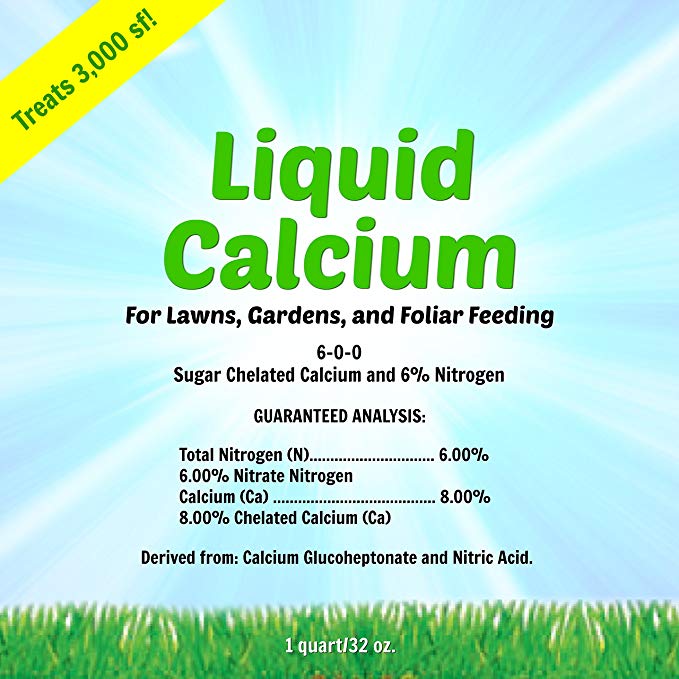- Make sure this fits by entering your model number.
- A fast, easy and dust-free way to lime lawns and gardens
- Supplies Calcium for better soil and plant health
- Also contains 6% Nitrogen for fast absorption and greening
- Can be used as a foliar feed on all garden and farm crops
- Available in sizes from qts to 275 gallon totes
(Formerly known as Liquid Lime.) Calcium not only helps raise pH, but it is also a vital plant nutrient (see below). Our product is derived from a food-grade source of Calcium that is often used in nutritional supplements . It is sugar-chelated, meaning it is binded with sugars into a form that makes it immediately available for absorption. (We do not use EDTA for chelation in any of our products.) We have also added 6% Nitrogen to speed up absorption and provide extra plant nutrition. Our Liquid Lime Formula can be sprayed on Calcium deficient plants for foliar absorption (through the leaves). This is the fastest and most efficient way to improve Calcium levels on vegetable and flower gardens, ornamental plants, lawns, trees and farm crops. Calcium plays a key part in our 4 Step Garden Fertilizing Program in both the Growth Stage and the Flower and Fruiting Stages of plant growth. By spraying the Liquid Lime foliarly (on the leaves) nutrients are immediately available for plant uptake. Application Rates: For Lawns and Gardens as a Calcium Supplement: Apply 4 oz per 1000 sf. two to three times yearly. For ACIDIC Soils: Apply at 10-12 oz per 1000 sf Apply 2-3 times per season if needed. Foliar Feeding: For Calcium deficient Ornamentals, Flowers or Vegetables. Pour into a pump or trigger sprayer and mist tops and bottoms of leaves to the point of runoff with a 2 oz per gallon of water (½ oz per quart ) solution. Benefits of Calcium: •Calcium builds strong cell walls for plants and fruits. •Calcium is essential for soil organisms, including nitrogen-fixing bacteria. •Calcium is also part of the make up of enzymes and aids in protein synthesis and cell division. •Calcium will aid in prolonging the shelf life of fruits and vegetables. •Calcium raises soil pH. It alkalizes or “sweetens” acidic soils. •Calcium neutralizes organic acids in the plants, enabling nutrients and water to enter more freely.

